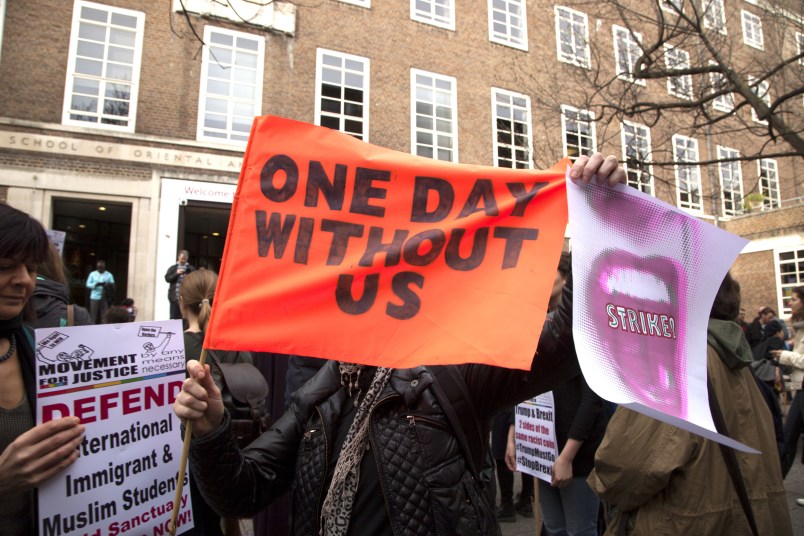EL PASO, Texas (AP) — The arrest by federal authorities in El Paso of a transgender woman who was seeking protection from an abusive boyfriend has led to questions about what lengths authorities will go to apprehend people under newly stepped-up immigration policies.
Advocates say Irvin Gonzalez’s abuser tipped off authorities about her court hearing, resulting in her Feb. 9 arrest by a task force composed of Border Patrol agents and Immigration and Customs Enforcement officers who surrounded the exits of the courthouse until she was detained.
Her federal public defender on Wednesday filed a petition for her immediate release, saying in court documents that a Border Patrol agent perjured himself when he wrote in an affidavit that Gonzalez, who authorities say has a long criminal record, was arrested outside the building when surveillance shows agents conducting the arrest inside.
Gonzalez, 33, is transgender and began transitioning two years ago, according to one of her attorneys, Melissa Untereker. Gonzalez is distraught and suffering from the side effects of stopping her hormone therapy, which she hasn’t been able to get in jail, she said.
Gonzalez is in the custody of the U.S. Marshals Service while she faces a federal charge of illegal re-entry into the United States.
“She’s very emotionally fragile right now,” Untereker said. “She’s afraid of her abuser, and she’s afraid of what’s going to happen to her going forward.”
Gonzalez has been deported six times since 2010 and has a recent conviction of possession of stolen mail, ICE spokeswoman Leticia Zamarripa said.
“Gonzalez also has a lengthy criminal history with at least eight convictions on charges including false imprisonment, assault, larceny, domestic violence and illegal re-entry,” Zamarripa said. Gonzalez was most recently deported to Mexico on Jan. 23, but she quickly returned to the U.S. She then sought a protective order against a boyfriend she accused of severe physical abuse and death threats on three occasions during their nine-month relationship.
An El Paso judge granted the order on Feb. 9, and she was arrested after her hearing.
Advocates say her case is a classic example of the vulnerability faced by immigrants who lack legal status because their abusers often threaten to turn them in to immigration authorities if they report the abuse.
Untereker said she believes Gonzalez’s boyfriend was the one who tipped off ICE because nobody else knew about the court date. ICE says it was notified by a law enforcement agency but provided no specifics about the tip.
The arrest sparked outrage among local officials and domestic abuse victim advocates who said a courtroom that issues protective orders is no place to arrest someone.
Rep. Beto O’Rourke, a Democrat from El Paso, requested a meeting with local ICE officials last week and said he was told the arrest inside the courthouse was an anomaly and being handled internally. O’Rourke was told by an agent that “there are lessons to be learned” and that the agency will use this example in future trainings.
The agency said it doesn’t publicly comment on internal matters.
The woman’s lawyers hope Gonzalez will be released based on information the agent, John Urquidi, wrote in his signed criminal complaint affidavit.
He wrote that agents spotted Gonzalez after she walked out of the courthouse and that they detained her along a sidewalk. But surveillance video released by court officials shows agents escorting Gonzalez out of the courthouse as more than a dozen women sit in a waiting area.
The county attorney’s office says about six Border Patrol and ICE agents walked into the building — including one who was in the courtroom during the hearing — and surrounded all exits before taking Gonzalez into custody.
“If someone says something happened outside of the courthouse and something different happened inside of the courthouse, I don’t know if we can believe that agent’s word in the future,” O’Rourke said in Spanish during a news conference last week.
Copyright 2017 The Associated Press. All rights reserved. This material may not be published, broadcast, rewritten or redistributed.






